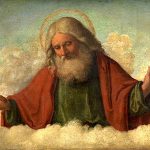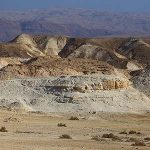Isaiah 3
Read the Text
KJV
King James Version
NRSV
New Revised Standard Version
NIV
New International Version
LEB
Lexham English Bible
HEB
Hebrew Bible
ASV
American Standard Version
NET
New English Translation
Summary
Israel will be punished by the Lord for their wickedness and disobedience to the commandments. The Lord pleads for and judges His people.
| KJV | JST |
| (1) For, behold, the Lord, the Lord of hosts, doth take away from Jerusalem and from Judah the stay and the staff, the whole stay of bread, and the whole stay of water, | (1) For, behold, the Lord, the Lord of hosts, doth take away from Jerusalem and from Judah the stay and the staff, the whole staff of bread, and the whole stay of water, |
| (4) And I will give children to be their princes, and babes shall rule over them. | (4) And I will give children unto them to be their princes, and babes shall rule over them. |
| (6) When a man shall take hold of his brother of the house of his father, saying, Thou hast clothing, be thou our ruler, and let this ruin be under thy hand: | (6) When a man shall take hold of his brother of the house of his father and shall say, Thou hast clothing, be thou our ruler, and let not this ruin come under thy hand. |
| (7) In that day shall he swear, saying, I will not be an healer; for in my house is neither bread nor clothing: make me not a ruler of the people. | (7) In that day shall he swear, saying, I will not be a healer, for in my house there is neither bread nor clothing: make me not a ruler of the people. |
| (8) For Jerusalem is ruined, and Judah is fallen: because their tongue and their doings are against the Lord, to provoke the eyes of his glory. | (8) For Jerusalem is ruined, and Judah is fallen: because their tongues and their doings have been against the Lord, to provoke the eyes of his glory. |
| (9) The shew of their countenance doth witness against them; and they declare their sin as Sodom, they hide it not. Woe unto their soul! for they have rewarded evil unto themselves. | (9) The show of their countenance doth witness against them and doth declare their sin to be even as Sodom. They cannot hide it. Woe unto their soul! for they have rewarded evil unto themselves. |
| (10) Say ye to the righteous, that it shall be well with him: for they shall eat the fruit of their doings. | (10) Say unto the righteous that it is well with them, for they shall eat the fruit of their doings. |
| (11) Woe unto the wicked! it shall be ill with him: for the reward of his hands shall be given him. | (11) Woe unto the wicked, for they shall perish, for the reward of their hand shall be upon them! |
| (12) As for my people, children are their oppressors, and women rule over them. O my people, they which lead thee cause thee to err, and destroy the way of thy paths. | (12) And my people, children are their oppressors, and women rule over them. O my people, they which lead thee cause thee to err, and destroy the way of thy paths. |
| (14) The Lord will enter into judgment with the ancients of his people, and the princes thereof: for ye have eaten up the vineyard; the spoil of the poor is in your houses. | (14) The Lord will enter into judgment with the ancients of his people, and the princes thereof. For ye have eaten up the vineyard and the spoil of the poor is in your houses. |
| (26) And her gates shall lament and mourn; and she being desolate shall sit upon the ground. | (26) And her gates shall lament and mourn; and she shall be desolate, shall sit upon the ground. |
Commentary
Bible Central Commentary
These free resources were developed for use in the free ScripturePlus app. Many of the contributors are professors of religion and ancient scripture at Brigham Young University.
Historical Commentaries
Many of the commentaries below are in the public domain and were authored over 100 years ago. In many cases, they do not reflect the findings of modern scholarship, but they may be helpful for understanding the history of biblical scholarship.
Videos
Watch selected videos on this chapter of the Bible to enhance your study. Note: Not all videos included come from a Latter-day Saint perspective. Inclusion on this list should not imply endorsement for all content.
Overview: Isaiah 1-39
BibleProject
Historical Settings
Time
*All Dates Are Approximate, according to the narrative of the Bible. These dates may reflect literary significance as opposed to the precise dates of history.
See Biblical ChronologyFurther Reading
Book of Mormon Central, “Why Does Isaiah Prophesy of the Daughter of Zion? (2 Nephi 13:16–17),” KnoWhy 550 (February 18, 2020).
Donald W. Parry and Janet L. Garrand Willis, “Notes on Vocabulary in Isaiah 2-11, 13-14, 29, 48-54,” in Isaiah in the Book of Mormon, ed. Donald W. Parry and John W. Welch (Provo, UT: Foundation for Ancient Research and Mormon Studies, 1998), 409–422.
David Rolph Seely, “Nephi’s Use of Isaiah 2-14 in 2 Nephi 12-30,” in Isaiah in the Book of Mormon, ed. Donald W. Parry and John W. Welch (Provo, UT: Foundation for Ancient Research and Mormon Studies, 1998), 151–169.





Complete Commentary on the Whole Bible
Matthew Henry (1706)
Commentary on the Bible
Adam Clarke (1831)
Expository Notes of Dr. Thomas Constable
Thomas Constable
Rashi’s Commentary
Rashi (Shlomo Yitzchaki)
Notes on the Bible
Albert Barnes (1834)
Exposition of the Entire Bible
John Gill (1746–63)
Biblical Commentary on the Old Testament
Carl Friedrich Keil and Franz Delitzsch (1857–78)
Explanatory Notes on the Whole Bible
John Wesley (1754–65)